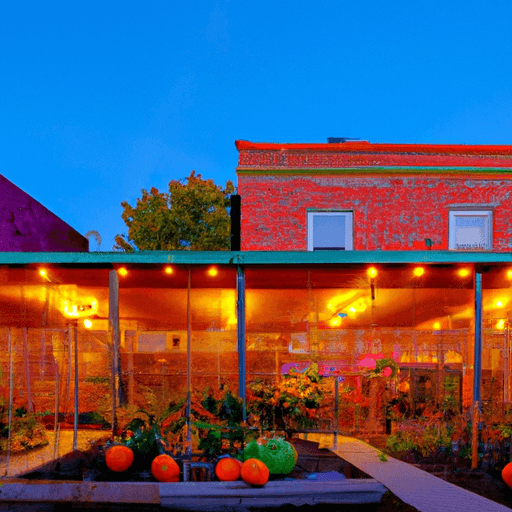Growing Your Own Organic Food at Home: An In-Depth Guide
Organic gardening is a great way to grow your own food and ensure you’re eating healthy, safe produce. Growing your own organic food at home can be incredibly rewarding, and it doesn’t have to be difficult or time-consuming. In this guide, you’ll learn the basics of organic gardening, including how to start an organic garden, which organic fertilizers and soil to use, common pests and diseases that can affect plants, and how to ensure your organic food is safe to eat. Get ready to start harvesting your own organic produce in no time!
Starting an Organic Garden
To get your organic garden up and running, you’ll need to pick a spot. Choose a location that will get plenty of sunlight and has access to water. You’ll also need to decide what type of organic garden you want to create. Do you want to grow a variety of vegetables, herbs, or flowers? Once you’ve decided, it’s time to prepare your soil. It’s important to use organic soil and fertilizers, as these won’t contain any harmful chemicals or pesticides.
Organic Fertilizers and Soil
Organic fertilizers and soil are essential for successful organic gardening. Organic fertilizers are made from natural ingredients, such as compost, manure, and seaweed. These fertilizers provide essential nutrients to your plants, as well as beneficial bacteria and fungi that help keep your garden healthy. When it comes to soil, organic options are also available. Organic soil is typically made from composted material, such as leaves and grass clippings. It’s important to choose soil that is well-draining and has a good balance of nutrients.
Common Pests and Diseases
Unfortunately, pests and diseases can affect plants in an organic garden. Common garden pests include aphids, spider mites, and slugs. These pests can be controlled by using natural methods, such as introducing beneficial insects, such as ladybugs, to the garden. Additionally, diseases such as powdery mildew and blight can occur in an organic garden. To prevent these, it’s important to keep the garden clean and free of debris, and to practice good airflow and water conservation techniques.
Ensuring Your Organic Food is Safe to Eat
One of the main benefits of organic gardening is that you can be sure that the food you’re eating is safe and healthy. To ensure that your organic food is safe to eat, it’s important to practice good hygiene in the garden, such as washing your hands before and after handling plants and tools. Additionally, it’s important to use natural pest and disease control methods, and to avoid using synthetic chemicals or pesticides in your garden.
Conclusion
Organic gardening has many benefits, from providing you with safe and healthy food to being an enjoyable and rewarding experience. With the right tools and knowledge, you can be sure that you’re harvesting the freshest and healthiest produce. Now that you’ve read this guide, you’re ready to get started on your organic gardening journey. Happy harvesting!




















Comments
Leave a Comment